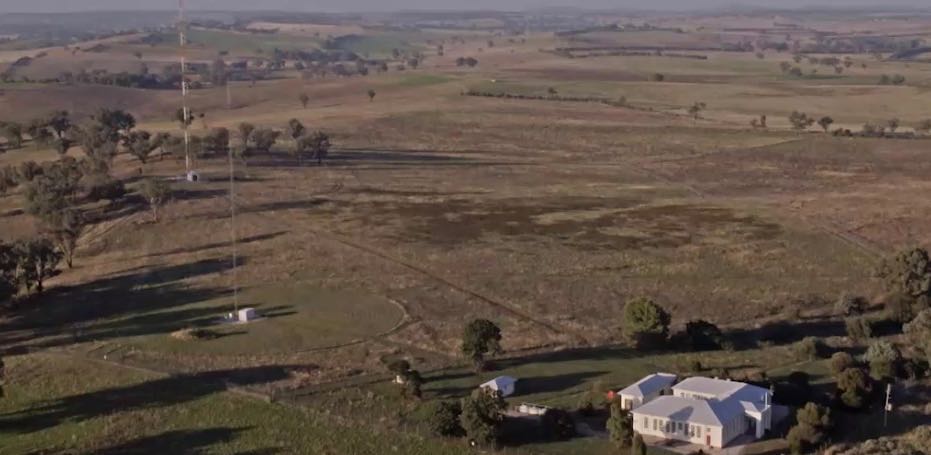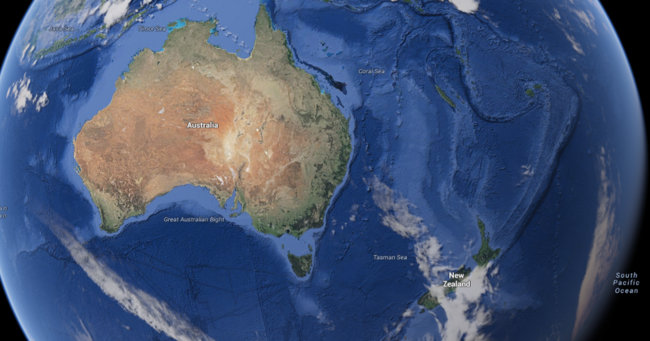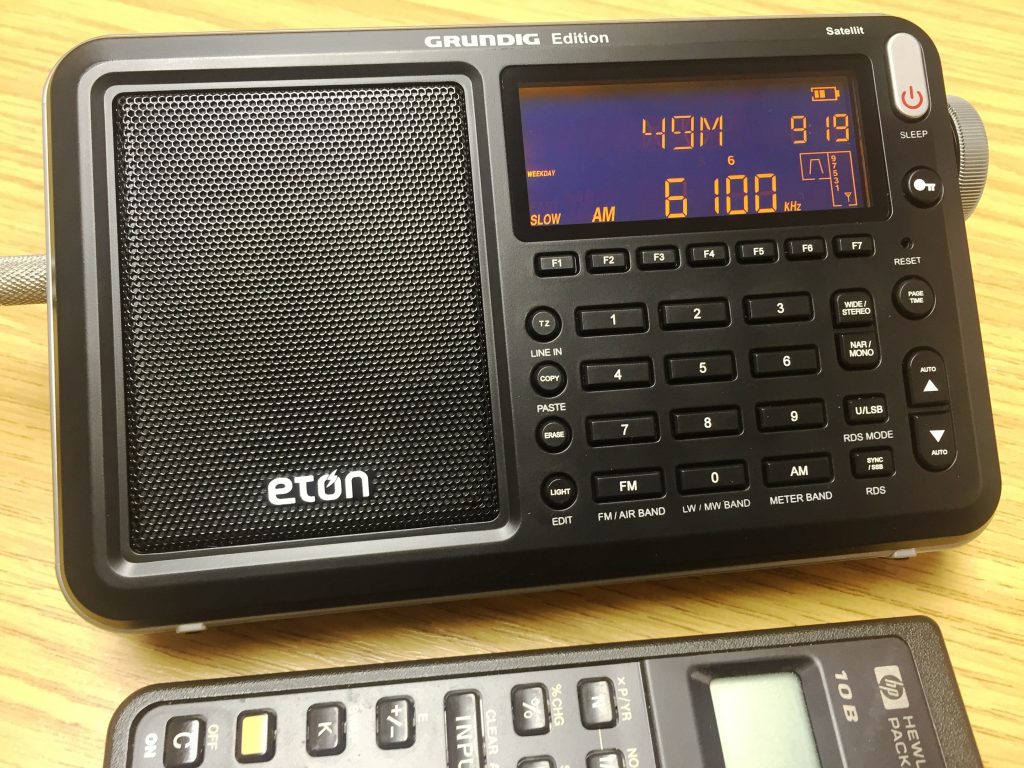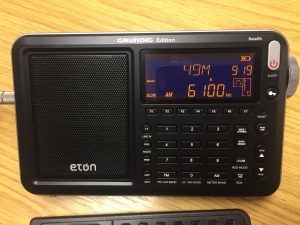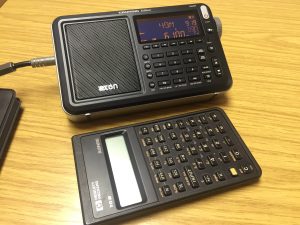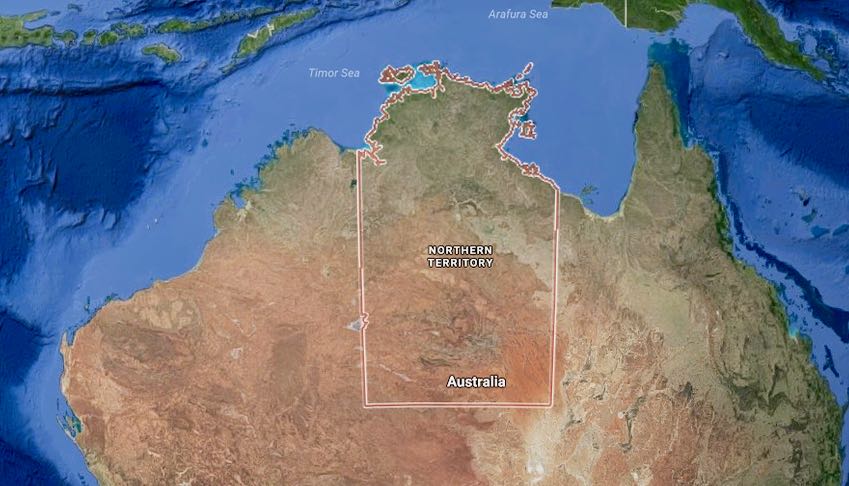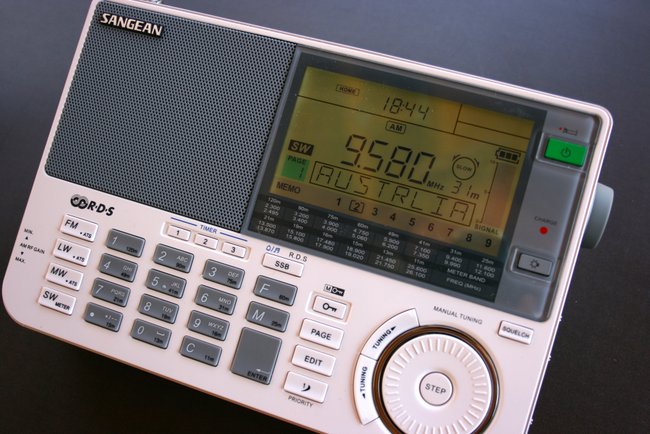Many thanks to SWLing Post contributor, Dave Porter (G4OYX), who shares a link to this excellent video tour of the ABC Central West radio transmitter in Cumnock, NSW, Australia.
Tag Archives: ABC
RNZI becomes the voice of the Pacific
(Source: Asia Radio Today via Mark Little)
As Radio Australia cuts shortwave services, RNZI becomes the voice of the Pacific
Radio New Zealand International (RNZI) continues to serve people across the Pacific region, delivering essential day to day news and information and providing a vital lifeline in times of natural disaster, as Radio Australia closes its international shortwave transmission service to Papua New Guinea and the Pacific.
Emphasising the importance of RNZI’s 25-year relationship with New Zealand’s Pacific neighbours, RNZ CEO, Paul Thompson said: “Remote parts of Papua New Guinea, Solomon Islands and Vanuatu who may be feeling the loss of the ABC can rest assured RNZI will continue to provide independent, timely and accurate news, information and weather warnings as well as entertainment to its Pacific listeners.”
Australian Broadcasting Corporation’s decision to switch off its shortwave services as a money saving measure has already drawn criticism and protests from a number of groups in Australia.
Read more at: http://www.asiaradiotoday.com/news/radio-australia-cuts-shortwave-services-rnzi-becomes-voice-pacific © Radioinfo.com.au
In truth, RNZI has always done a fabulous job of covering the Pacific islands with news and information. I’m happy to hear they plan to stick around.
The Eton Satellit: a short history & first impressions as a DX workhorse
Hi there, I’m sure some of you will read the title of this post and conclude ‘that’s exactly that the Eton Satellit could never be’. I was of the same opinion, having read many reviews online suggesting this little radio on shortwave at least was essentially a bit ‘duff’ as we say in the UK. The fundamental flaws identified when it was first released included, but were not limited to – a general lack of sensitivity, poor AM SYNC stability and poor AM SYNC audio, poor filtering, particularly in SSB mode, muting whilst tuning, poor display visibility in sunlight, poor AGC timing…the list goes on.
On MW and FM there was a general consensus that this little radio performed very well, but with all the other flaws highlighted here, it certainly did not represent good value for money. A number of reviewers concluded that the Eton was an insult to the ‘Satellit’ brand. Oh dear, yet another shot in the foot for Eton then. User perception was confirmed when I posted my first reception video using this radio – a number of my Oxford Shortwave Log subscribers got in touch to say they were essentially scared off buying this radio at the time and that this was of course driven by the negative reviews that proliferated the internet.
Since the original launch, however, it would appear that firmware updates have improved this receiver immesurably, although I am quite certain this news hasn’t really filtered out into the market because there still appears to be a consensus that the newest Satellit is ‘not worthy’ so-to-speak. So, how did I come to buy a Satellit, a decision that could very well be perceived as risky to say the least, even foolhardy?! Well, one of my DXing fellows on YouTube (check out his YouTube channel – it’s full of amazing DX) posted a video of his recently purchased Satellit in a number of tests against the (largely) brilliant Tecsun PL-880. The Satellit equalled or bettered the PL-880 on MW and SW. I was very surprised at this outcome, for the same reasons as everyone else – it wasn’t supposed to be that good.
Even though the poster himself suggested the Eton might not be classified as a classic Satellit, it’s interesting to note that another DXer with three decades of experience and someone who’s owned the Satellit 400, 500 and 700 models concluded the opposite and that for various reasons, the newest Satellit is a far better performer with weak DX than those vintage receivers ever were. In his experience, the classic Satellit receivers always delivered excellent audio and thus were brilliant for listening to international broadcasters. However, for weak DX the Satellit 500 didn’t perform as well as the budget Sangean ATS-803A and the ICF-2001D wiped the floor with the 700. So, is the Eton worthy of the Satellit branding? Perhaps the problem is it’s just so small – I mean compared to the Satellit 800….you could confuse the Eton to be it’s remote control – if it had one! It is diminutive and I’ve purposely taken a picture of it with my calculator to demonstrate this. It’s actually not much bigger than the Tecsun PL-310ET, so in terms of form-factor, definitely a departure from Satellits of the past.
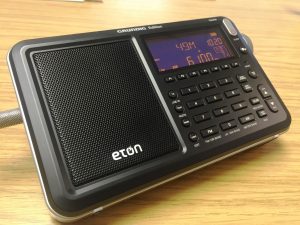
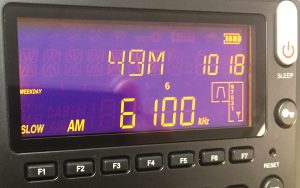
What about performance? I tested the Eton at the woods I use for DXing, with a 50 metre longwire. In the space of a couple of hours, I’d recorded ABC Northern Territories on 2325, 2485 and 4835 kHz, Pyongyang BS, North Korea on 3320 kHz, Angola on 4950 kHz, Guinea on 9650 kHz and a weak signal from the Solomon Islands on 5020 kHz. The signals from ABC on 2485 kHz, Angola and Guinea were stronger and clearer than I’d ever heard previously. Pyongyang on 3320 kHz and the Solomon Islands were personal firsts.
The Eton performed way beyond my expectations and I hope this post will go some way to restoring the repuation of this brilliant little radio, which in my opinion fully deserves to be called a Satellit. More testing is necssary, including direct comparisons with other receivers – all of that to come in due course. Text links and embedded reception videos follow. Thanks for reading/watching/listening and I wish you all great DX!
- The Eton Satellit; is it any good? Let’s start with ABC Northern Territories on 120 metres…
- The Eton Satellit; is it any good? Rádio Nacional de Angola 4950 kHz…wonderfully clear
- The Eton Satellit; is it any good? Moving on to ABC Northern Territories 2325 kHz…
- The Eton Satellit, First reception of Solomon Islands BC, 5020 kHz (requires headphones)
- The Eton Satellit; Radio Guinée 9650 kHz Conakry, Guinea, armchair copy
- The Eton Satellit: Pyongyang Broadcasting Station 3320 kHz, North Korea
Click here to view on YouTube.
Click here to view on YouTube.
Click here to view on YouTube.
Click here to view on YouTube.
Click here to view on YouTube.
Click here to view on YouTube.
Clint Gouveia is the author of this post and a regular contributor to the SWLing Post. Clint actively publishes videos of his shortwave radio excursions on his YouTube channel: Oxford Shortwave Log. Clint is based in Oxfordshire, England.
ABC will stand by decision to axe NT shortwave service
(Source: ABC News via Trevor R)
The ABC has defended the axing of its Northern Territory’s long-distance radio service, despite calls from federal representatives to reverse the decision.
This month the broadcaster announced its HF shortwave radio transmitters at Katherine, Tennant Creek and Roe Creek (Alice Springs) would be switched off on January 31, ceasing ABC Radio coverage across the long distance radio transmission platform.
The decision has attracted criticism from cattle station owners, Indigenous ranger groups and fishermen, who argue it was done without community consultation and would deprive people in remote areas of vital emergency warnings.
On Monday Senator Malarndirri McCarthy and Lingiari MP Warren Snowdon met with ABC management in a bid to have the decision reversed.
“The result of that meeting is that they still stand by that decision. We did find the meeting quite disappointing really,” Senator McCarthy told 105.7 ABC Darwin on Monday.
“There really hasn’t been any decency in terms of respect and consideration for the usage of shortwave, which has been a vital service and is a vital service across the Northern Territory.
Cutting NT shortwave service saves $1.2m
On Tuesday ABC spokesman Ian Mannix told 105.7 ABC Darwin the decision to axe shortwave services “will only affect a very, very small amount of people”.
However, he conceded a formal survey had not been done about how many people would be impacted.[…]
It costs $1.2 million to run the shortwave service, which Mr Mannix said would now be reinvested in the ABC’s expansion of its digital radio services in Darwin and Hobart.
ABC unlikely to reinvest in expanded AM service
Listeners to 105.7 ABC Darwin said Mr Mannix underestimated the remote realities of the Territory, a place six times the size of Britain with a population of 240,000.
“There’s about 150 boats in the cyclone season across the Top End of Australia. Every one of those is listening to shortwave,” a North East Arnhem-based fisherman said.
“The local radio is much more comprehensive than what BOM does.”
Mark Crocombe from the Thamarrurr Rangers in Wadeye has previously said his group’s VAST service did not work during cloudy weather, especially during monsoons and cyclones.
He said he had previously found out about cyclone warnings through the ABC shortwave radio, without which he would have had no notice.
On Tuesday Mr Crocombe added that apart from his ongoing emergency weather concerns, the decision would also further isolate people working remotely out bush.
“We’ve used shortwave to listen to the Olympic Games, the AFL grand final, rugby union World Cup. We’ve listened to it all on shortwave.”[…]
This is a reasonably in-depth article and I would encourage you to read it in its entirety at the ABC News website.
PINA calls for ABC to review closure of shortwave service
(Source: Pasifik via SWLing Post contributor Trevor R)
[The] Pacific Islands News Association (PINA) is concerned with the decision of the Australian Broadcasting Corporation (ABC) to shut down its Shortwave Radio Services to the Pacific by the end of January next year.
PINA joins the growing voices opposed to the ABC’s plan to close this ‘valuable and vital source of information’ to people and communities in the Pacific that have relied on Radio Australia for almost eight decades.
More so now with most Pacific Island Countries in the middle of their cyclone season, said PINA President Moses Stevens, who laments the impact of the service will have on the peoples in the Pacific who rely on the service after it is closed in January.
“PINA is concerned because it would mean the end of an era in regional broadcasting and a service that Pacific people have been reliant on for news, information and entertainment for over many years to date,” he said.
“Given the geographical landscape of the Pacific region, radio is still the most effective and efficient means of communication and source for information.
“The fact that most islands in the region are under resourced with regards to sustaining their broadcast stations, most of our people rely on Radio Australia and Radio New Zealand to acquire news and information, including cyclone warnings.”
Mr Stevens said for almost 80 years, Radio Australia’s Shortwave Service has been the lifeline for many rural communities in the Pacific who rely on it for vital emergency service information.
Continue reading the full article on the Pasifik news site….
Labor MPs want to protect ABC Northern Territory shortwave service
Many thanks to SWLing Post contributor, Ian P, who comments with this link to an article in News.com.au:
Shortwave radio cuts risk NT lives: Labor
Two federal Labor MPs have demanded the national broadcaster reverse a decision to switch off its radio shortwave service in the Northern Territory, which they say could be life threatening.
Senator Malarndirri McCarthy and member for Lingiari Warren Snowdon have expressed “deep disappointment” about the ABC’s plan to cut the transmitters from the end of January.
They insist it is a crucial platform which allows listeners in indigenous communities, pastoral stations and other remote areas to access radio during emergencies.
“In times of natural disaster – such as flood, cyclones or fire – it can quite literally mean the difference between life and death,” they said in a joint statement on Monday.
“ABC management must stop treating Territorians in remote areas like second-class citizens.”
The ABC will still broadcast via FM and AM frequencies, the viewer access satellite television (VAST) service and online.
“To claim VAST satellite and mobile phone technology will fill the gap created is simply not true because these services are not mobile. As we were told today, they are only now trialling mobile antennas,” Ms McCarthy and Mr Snowdon said.
ABC News: End of shortwave radio service ‘could be life threatening’
(Source: ABC News via Richard Cuff)
An Indigenous ranger group in the Northern Territory says the ABC’s decision to end its shortwave radio service could be life threatening.
The ABC announced this week its three HF shortwave radio transmitters at Katherine, Tennant Creek and Roe Creek (Alice Springs), would be switched off on January 31, 2017.
ABC Radio will continue to broadcast on FM and AM bands, via the viewer access satellite television (VAST) service, streaming online and via the mobile phone application.
Mark Crocombe from the Thamarrurr Rangers, in the remote community of Wadeye, said the rangers spent days and sometimes weeks at a time away in the bush and out on sea patrols.
He said the group relied on the ABC’s shortwave radio for weather reports and emergency information.
“Otherwise you have to call back to the base on the HF radio to ask people [there], but then you can’t listen to the report yourself, you are relying on someone else’s second-hand report,” Mr Crocombe said.
Mr Crocombe said on previous bush trips he had received warnings of cyclones via the ABC’s shortwave service, without which he would not have had any notice.
“Sure, it is expensive to keep the shortwave radio service going, but during cyclones, for the bush camps and people on boats, that is their only way of getting the weather reports,” he said.
“It could be life threatening, if you are out and you don’t know a cyclone is coming.”
Mr Crocombe said the VAST service did not work during cloudy weather, especially during monsoons and cyclones.
[…]
[Northern Territory Cattleman’s Association] President Tom Stockwell, who lives on Sunday Creek Station with no access to AM or FM radio or mobile phone coverage, said the ABC’s decision to focus on digital transmission ignored people in the bush.
“It affects a big area of Australia and it affects those people that are remote from other forms of communication that rely on radio network,” he said.
“The ABC argument that it’s a 100-year-old technology doesn’t stack up. Electricity is 100-years-old — is the ABC going to get rid of electricity as well?” […]

